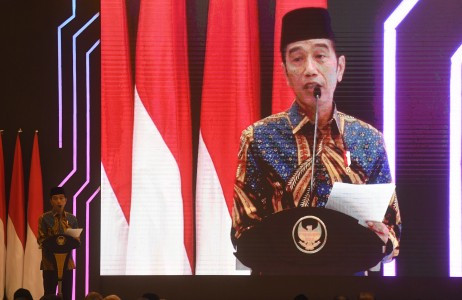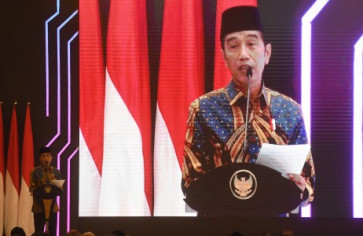Popular Reads
Top Results
Can't find what you're looking for?
View all search resultsPopular Reads
Top Results
Can't find what you're looking for?
View all search results2019’s real winner: Stigma of human right victims
For Indonesians concerned about human rights issues in Indonesia, this year’s election provided a disappointing choice between a former general suspected of gross human rights abuses and a civilian with a much cleaner past, but who has not kept his promises on human rights.
Change text size
Gift Premium Articles
to Anyone
T
he General Elections Commission (KPU) has announced that the incumbent, President Joko “Jokowi” Widodo, is the winner of this year’s election as predicted by a number of pollsters in their quick counts. History is repeating itself — or more precisely, his rival Prabowo Subianto is repeating himself: Just as he did after the quick count results were announced for the 2014 election, Prabowo has again declared victory this year, claiming electoral fraud and cheating.
Strangely, in 2017, when the very same pollsters indicated that his party won the Jakarta gubernatorial election, Prabowo immediately declared victory without questioning the validity of the quick count. So it seems that the pollsters are only reliable when his party wins.
His premature claim has created more tension between the two camps’ supporters. While Prabowo continues to urge his supporters to remain calm and keep the peace on his Twitter account, his public claims as reported in the mass media incite suspicion and even anger among his supporters for being treated unfairly by the KPU.
Many Indonesians seem easily wooed by identity politics. And Jokowi has certainly been worried about this trend, too, as he seems to have forgotten his own promises to deal with human rights issues in Indonesia.
Among his promises are solving the murder of activist Munir Said Thalib and the mass murders in 1965. Indeed, Jokowi held a national symposium on the 1965 tragedy.
However, it seems his main intention is not to seek out the truth but merely to test the waters: He backed off once he found it was too risky for him to continue the investigation into the 1965 genocide. After the symposium, he rarely mentioned human rights, but rather economic progress and stability.
Indeed, after the hard-line Islam Defenders Front (FPI) threatened to impeach Jokowi “over 1965”, and as rumors spread that the President was a communist, he reacted — but not by challenging the lies and the stigma, but by consolidating the stigma against the victims. He declared that he would “clobber” any communist — if there were any. Then on Sept. 29, 2017, he watched the New Order propaganda film Pengkhianatan G30S/PKI (The Betrayal of the 30 September Movement) along with about 1,000 people in Bogor. Jokowi seems to have been easily affected by the rumors his opponents spread.


















